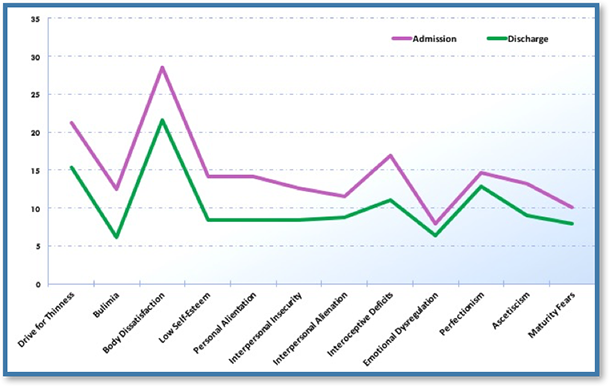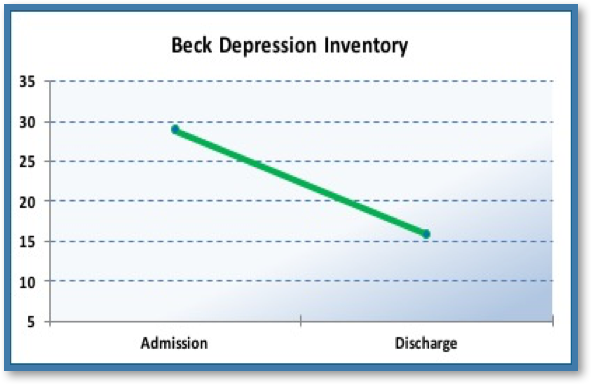Treatment Outcomes
At EDCare in Denver, Kansas City and Omaha, individuals receiving care are asked to complete a psychological test battery to assess the eating disorder as well as the individual’s temperament and co-occurring problems. The results of these measures help us:
- Identify and include each patient’s unique concerns in their treatment goals
- Increase the treatment team’s ability to insure an accurate and complete diagnostic picture of each patient
- Measure the overall effectiveness of our evidenced based treatment curriculum
Patients are also offered the opportunity to participate in 2 studies being conducted in collaboration with Dr. Guido Frank and his research team at University of Colorado Denver and Children’s Hospital of Colorado. One NIMH funded study examines how brain function and structure could be biological mechanisms underlying dimensions of eating disorder relevant behaviors. These patients undergo clinical assessments as well as functional and structural brain imaging procedures. Another study examines the role of medication on brain reward response in women with anorexia and bulimia nervosa.
Decreasing the severity of eating disorder symptoms
The Eating Disorder Inventory-3 (EDI-3) is a widely used questionnaire that assesses the overall severity of ED symptoms using 12 clinical scales reflecting core psychopathological features of patients with eating disorders. EDCare obtained Pre/Post treatment outcomes from 463 adults receiving treatment between 2012 and 2016. At the end of treatment statistically significant improvements were found on all EDI-3 subscales.

“It is our belief at EDCare that advances in scientific research will lead to new and more effective treatment.”
—Dr. Tamara Pryor,
Director of Clinical Research
Reducing symptoms of depression
The BECK Depression Inventory (BDI-II) is a 21-question inventory that measures the overall severity of depression. At EDCare, we treat all mental illnesses that co-occur with the eating disorder. This integrative treatment approach is proven to be more effective than treating disorders separately.

Scores can range from 0 to 63 with higher scores indicating greater severity of depression. As illustrated, adults treated for both their eating disorder and depression experienced statistically significant reduction in depressive symptoms at the time of their discharge.
